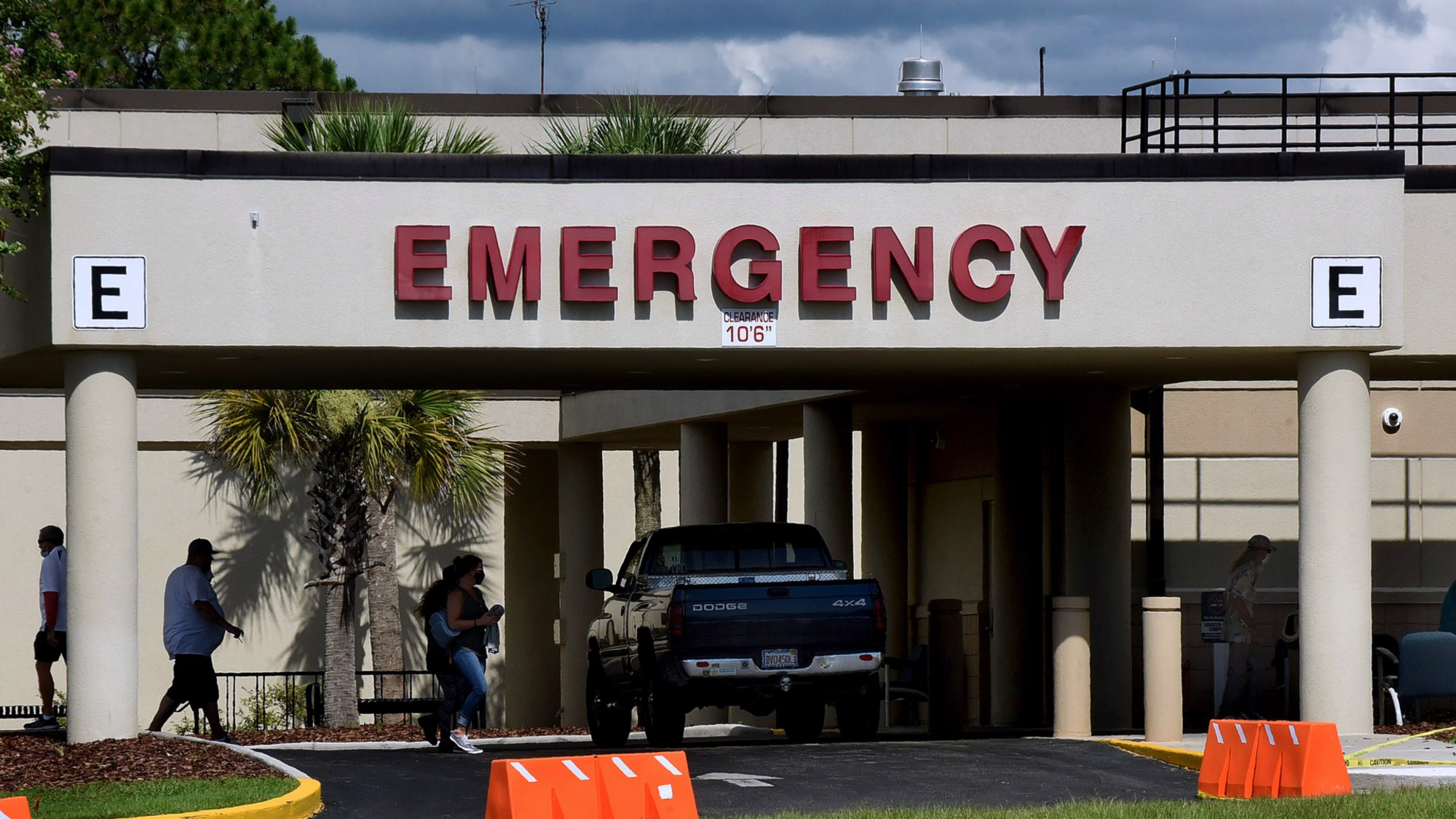Hospital admissions ‘inflated’ at height of UK coronavirus outbreak
Expert says unreliable figures are ‘clouding our judgment’ about state of pandemic

A free daily email with the biggest news stories of the day – and the best features from TheWeek.com
You are now subscribed
Your newsletter sign-up was successful
The number of patients admitted to hospital with Covid-19 was over-reported at the peak of the coronavirus pandemic, an investigation for the government’s Science Advisory Group for Emergencies (Sage) has revealed.
Analysis of hospital figures showed patients “being counted as Covid hospital admissions if they had ever had the virus”, meaning those patients were “added to those being admitted directly due to it”, The Telegraph says.
Government figures had shown that at the pandemic’s height in early April, almost 20,000 people a week were admitted to hospital with coronavirus symptoms. However, “the true figure is unknown because of the problem with over-counting”, the paper adds.
The Week
Escape your echo chamber. Get the facts behind the news, plus analysis from multiple perspectives.

Sign up for The Week's Free Newsletters
From our morning news briefing to a weekly Good News Newsletter, get the best of The Week delivered directly to your inbox.
From our morning news briefing to a weekly Good News Newsletter, get the best of The Week delivered directly to your inbox.
The inflated admissions echoes problems with Covid-19 death data, the Telegraph’s science editor Sarah Knapton notes, in which “thousands of people who died of other causes were being included in coronavirus statistics if they had once tested positive”.
Health Secretary Matt Hancock announced an “urgent” review into the death figures last month, which the Daily Mail says would have recorded a Covid-19 death even if the person was “hit by a bus” after having previously tested positive.
Experts told The Telegraph that the admissions miscalculation was “particularly concerning because the number had been used to reflect the current state of the epidemic”.
Professor Carl Heneghan, director of the Centre for Evidence-Based Medicine at the University of Oxford, described it as a “crucial point”, adding that it is “more important than the death data because it is the best marker of the impact of the disease”.
A free daily email with the biggest news stories of the day – and the best features from TheWeek.com
Heneghan added that the counting “really does need sorting out as we go into the winter, otherwise we get into this noisy position where we can’t understand what’s going on. It’s clouding our judgment as to whether the disease is having a significant impact”.
Professor Stephen Powis, National Medical Director of NHS England said that it is “completely untrue to claim there has been any ambiguity in the data” on Covid inpatients, adding that “NHS trusts track data on patients in their hospitals that have Covid, whether admitted as a Covid patient, or for another condition”.
Noting that data was shared daily at Downing Street press conferences, Powis said that instructions to hospitals “have not fundamentally changed since the start of the pandemic” and that the NHS “worked with Sage” to ensure data is collected in a manner that supports their work.
Joe Evans is the world news editor at TheWeek.co.uk. He joined the team in 2019 and held roles including deputy news editor and acting news editor before moving into his current position in early 2021. He is a regular panellist on The Week Unwrapped podcast, discussing politics and foreign affairs.
Before joining The Week, he worked as a freelance journalist covering the UK and Ireland for German newspapers and magazines. A series of features on Brexit and the Irish border got him nominated for the Hostwriter Prize in 2019. Prior to settling down in London, he lived and worked in Cambodia, where he ran communications for a non-governmental organisation and worked as a journalist covering Southeast Asia. He has a master’s degree in journalism from City, University of London, and before that studied English Literature at the University of Manchester.
-
 Nuuk becomes ground zero for Greenland’s diplomatic straits
Nuuk becomes ground zero for Greenland’s diplomatic straitsIN THE SPOTLIGHT A flurry of new consular activity in the remote Danish protectorate shows how important Greenland has become to Europeans’ anxiety about American imperialism
-
 ‘This is something that happens all too often’
‘This is something that happens all too often’Instant Opinion Opinion, comment and editorials of the day
-
 House votes to end Trump’s Canada tariffs
House votes to end Trump’s Canada tariffsSpeed Read Six Republicans joined with Democrats to repeal the president’s tariffs
-
 A Nipah virus outbreak in India has brought back Covid-era surveillance
A Nipah virus outbreak in India has brought back Covid-era surveillanceUnder the radar The disease can spread through animals and humans
-
 A real head scratcher: how scabies returned to the UK
A real head scratcher: how scabies returned to the UKThe Explainer The ‘Victorian-era’ condition is on the rise in the UK, and experts aren’t sure why
-
 How dangerous is the ‘K’ strain super-flu?
How dangerous is the ‘K’ strain super-flu?The Explainer Surge in cases of new variant H3N2 flu in UK and around the world
-
 Covid-19 mRNA vaccines could help fight cancer
Covid-19 mRNA vaccines could help fight cancerUnder the radar They boost the immune system
-
 The ‘menopause gold rush’
The ‘menopause gold rush’Under the Radar Women vulnerable to misinformation and marketing of ‘unregulated’ products
-
 The new Stratus Covid strain – and why it’s on the rise
The new Stratus Covid strain – and why it’s on the riseThe Explainer ‘No evidence’ new variant is more dangerous or that vaccines won’t work against it, say UK health experts
-
 Private equity firms might be causing more deaths in hospital ERs
Private equity firms might be causing more deaths in hospital ERsThe Explainer Deaths in ERs purchased by private equity firms rose 13%
-
 RFK Jr. vaccine panel advises restricting MMRV shot
RFK Jr. vaccine panel advises restricting MMRV shotSpeed Read The committee voted to restrict access to a childhood vaccine against chickenpox